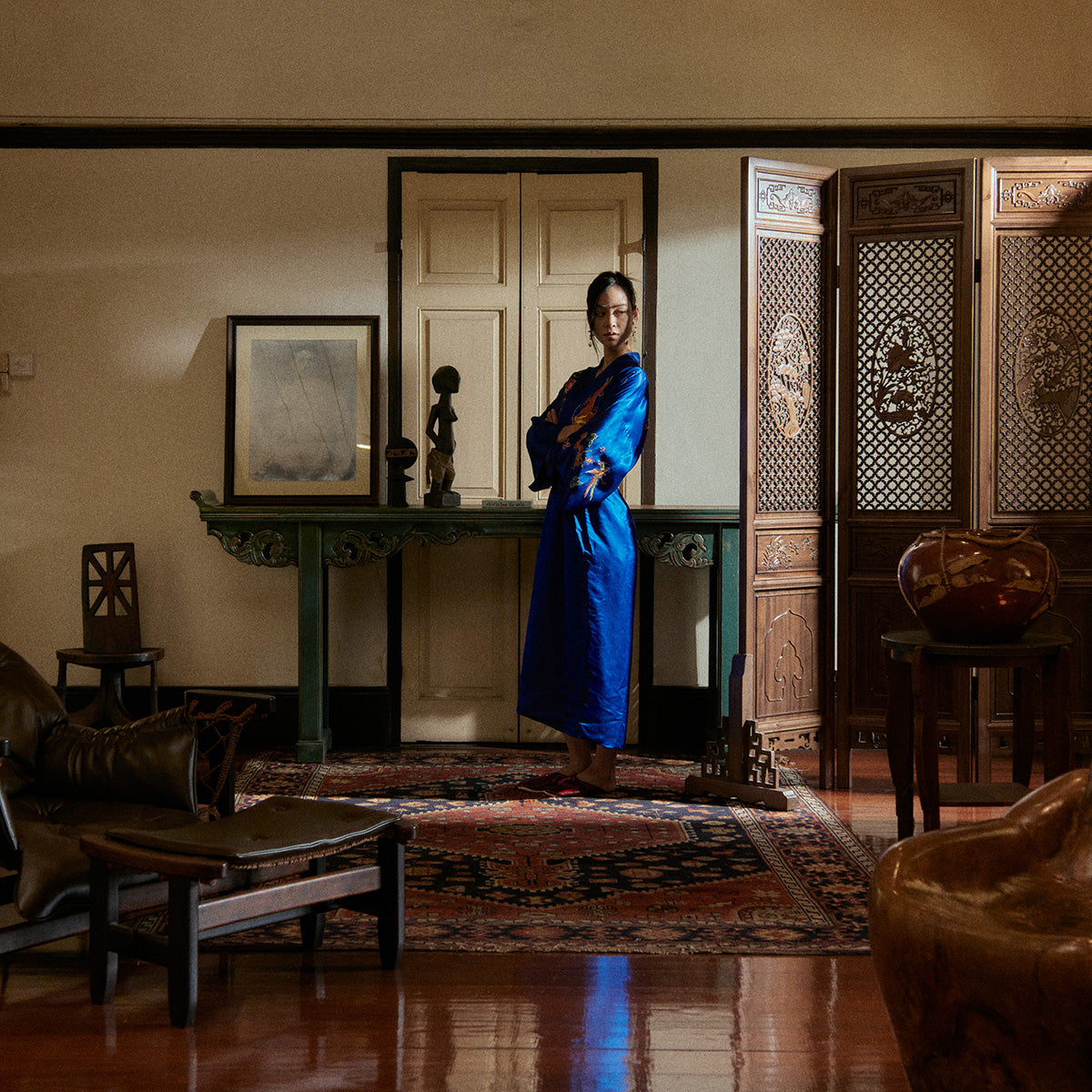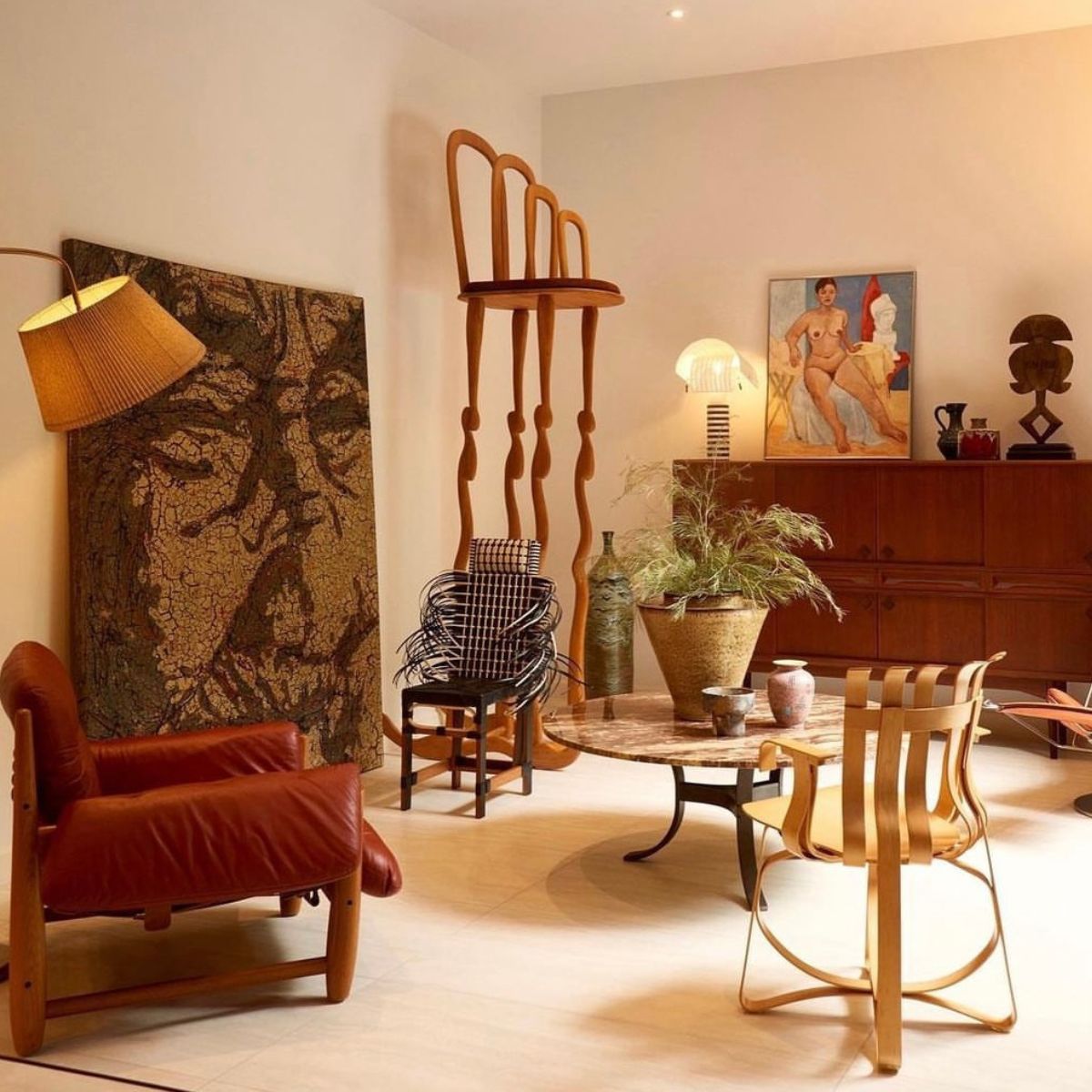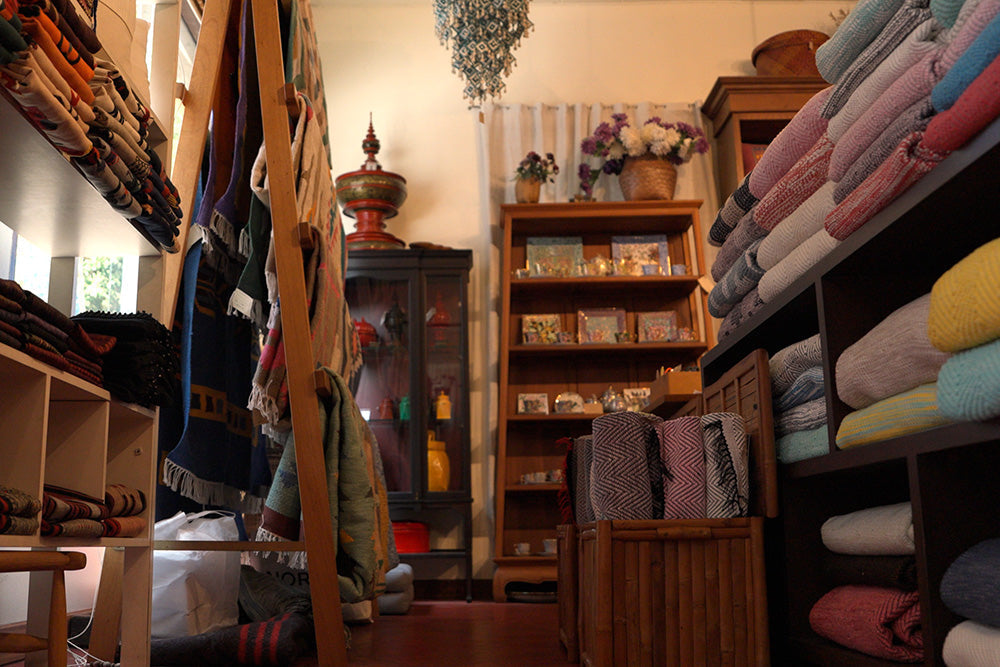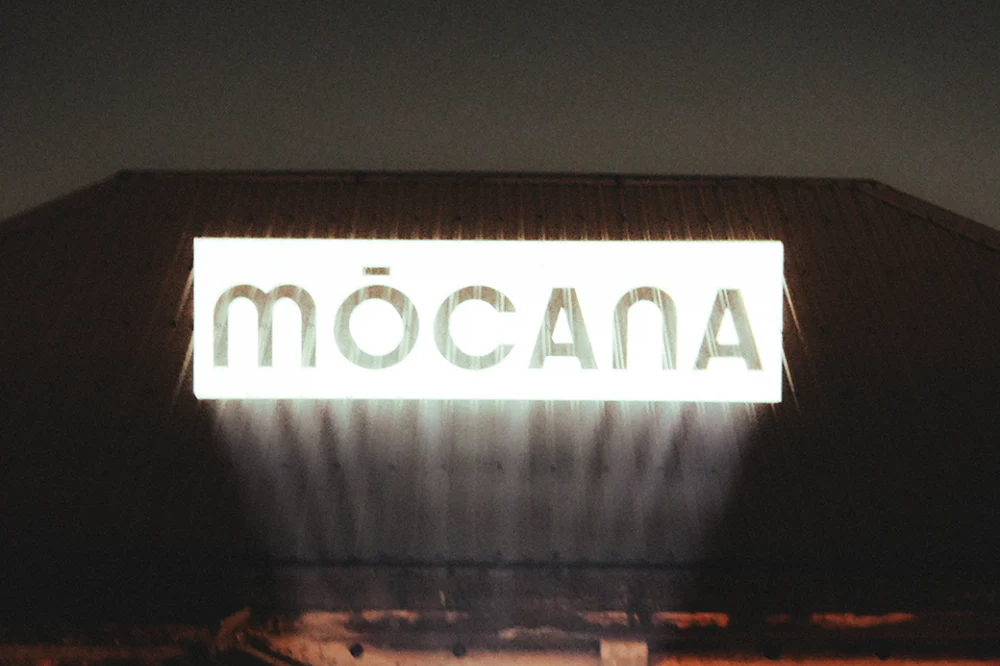What Makes a House Feel Like Home?
Is that feeling evident in the design language we employ to create a space that resonates with us? Or is it something buried deep within us, lying dormant until we finally return home—almost like a sense of nostalgia? These two ideas are more interwoven than we might think. But there’s a third, more crucial element: family. Named as an homage to the weavers, Paya Shop—which roughly translates to ‘Auntie Grandma’ in Thai—captures the essence of family like few places can. More than three decades ago, former bank employees Pramort and Preeyaporn (Jeab) Wongsirimana were at the forefront of Bangkok’s bustling banking industry. But over time, city life felt stale, revealing a long-held dream: to build a family business. The seeds for that dream had been planted years earlier, during their time studying in the U.S. Back then, even Starbucks—now a global coffee giant—was still in its infancy. Coffee was about passion, not just expansion. That love of craft is stitched into the very foundation of Paya Shop.
A Dream Reimagined
Chiang Mai in those days wasn’t the thriving hub it is now. A lack of fresh faces made it difficult for their coffee shop to survive. They needed to rethink their approach. One thing remained clear: passion was still the goal. But could it be sustainable? It had to be. Like a river that begins with a single droplet, joining other streams before becoming a source of life, Paya Shop’s journey started with a single discovery: traditional handwoven cotton. While their initial coffee shop plans didn’t come to fruition, there was a silver lining—one that would shape Paya Shop into what it is today. The intricate craftsmanship of handwoven textiles, passed down through generations, became their new focus. But for Pramort and Jeab, these textiles shouldn’t be confined to clothing.
That sparked an idea: home textiles.

Building a Legacy
The transition wasn’t without its challenges. With just 40,000 baht and three rolls of fabric, they began making pillows and tablecloths—driven purely by passion. Returning to Bangkok was the logical next step. The city held the market they needed, while their suppliers—fabric weavers and woodworkers—remained in Chiang Mai. Distance didn’t weaken their connection; instead, it strengthened it. Money can buy wood and machinery, but skilled craftsmanship is irreplaceable. These artisans became the backbone of Paya Shop. They were also the key to transforming traditional fabrics into home furnishings—something rarely done before. Bangkok provided another advantage: access to trade secrets and knowledge that would help them scale. But to uphold Paya Shop’s philosophy of slow design over fast fashion, they had to innovate while preserving traditional weaving methods. The weavers, the heart of the operation, were always the first to learn any new breakthroughs in production.
One of Paya Shop’s core values is its unwavering commitment to traditional craftsmanship. Their textiles are never factory-made. A single roll of fabric can take up to three months to weave by hand, but as Pramort describes, “You need concentration, you need a free mind to do it. It cannot be replicated in a factory." Their signature Mudmee (มัดหมี่) pattern embodies this philosophy. Rooted in the northern and Isaan regions of Thailand, each design encapsulates local culture and heritage. Beyond patterns, the use of natural fibers remains at the heart of Paya Shop’s ethos. Not only do they ensure durability, but they also retain their natural hues—a preference among their largely expat clientele.

The Power of Good Design & A New Generation
Paya Shop never relied on traditional advertising. Instead, they grew through word of mouth. This approach allowed them to operate at their own pace, prioritizing personalization and craftsmanship. Over 30 years later, they have yet to turn down an order. A strong in-store presence was also essential. It allowed Paya Shop to build personal relationships with customers while showcasing their work. With their daughters, Prye and Pree, stepping into the business, Paya Shop has entered a new chapter. Both sisters grew up in the store, spending countless hours immersed in the craft. For Prye, working at Paya Shop began as a way to find her path, but she soon embraced the sense of belonging. Pree initially followed her parents’ footsteps into banking, but her love for furniture ultimately brought her back. As a natural extension of the store’s success, Paya Shop’s carpentry workshop in Sukhumvit 71 has been running for over three decades. For the craftsmen who have watched Prye and Pree grow up, their involvement in the business was the final piece of the puzzle.
A Lasting Legacy
Today, Paya Shop is more than just a business—it’s a family legacy. At Surround Living, we are honoured to celebrate and share this craftsmanship with the world. As part of our community, Paya Shop helps preserve the artistry of slow design, ensuring these traditions continue to thrive for generations to come. From handwoven fabrics to thoughtfully crafted home textiles, every piece tells a story of patience, skill, and heritage. Now, you can bring this legacy into your home.
Discover the timeless artistry of Paya Shop—available now at surroundliving.com.




